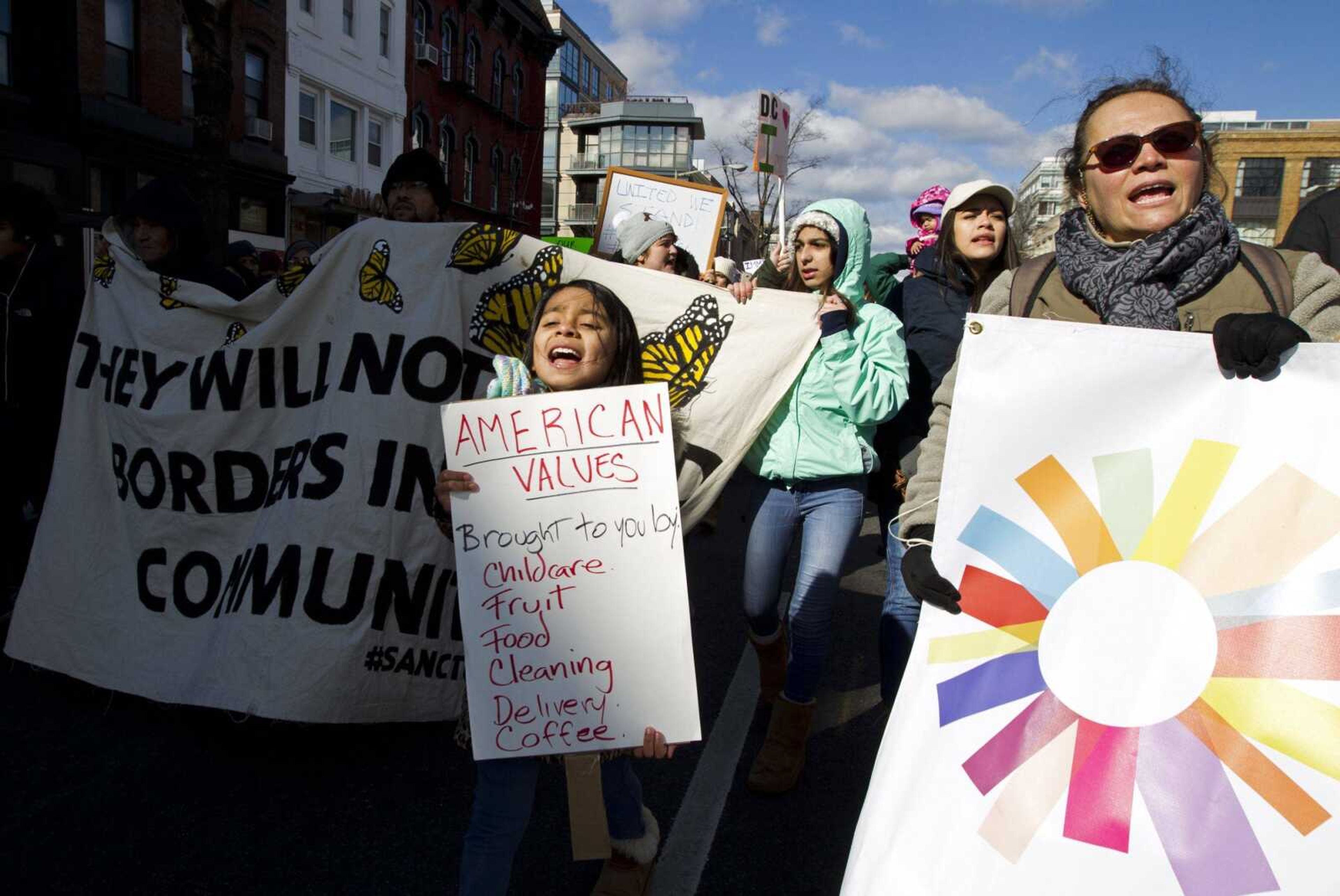'Day Without Immigrants' protest closes restaurants
PHILADELPHIA -- The heart of Philadelphia's Italian Market was uncommonly quiet. Fine restaurants in New York, San Francisco and the nation's capital closed for the day. Grocery stores, food trucks, coffee shops, diners and taco joints in places such as Chicago, Los Angeles and Boston shut down...
PHILADELPHIA -- The heart of Philadelphia's Italian Market was uncommonly quiet. Fine restaurants in New York, San Francisco and the nation's capital closed for the day. Grocery stores, food trucks, coffee shops, diners and taco joints in places such as Chicago, Los Angeles and Boston shut down.
Immigrants around the U.S. stayed home from work and school Thursday to demonstrate how important they are to America's economy, and many businesses closed in solidarity, in a nationwide protest called A Day Without Immigrants.
The boycott was aimed squarely at President Donald Trump's efforts to step up deportations, build a wall at the Mexican border and close the nation's doors to many travelers.
Organizers said they expected thousands to participate or otherwise show support.
It was unclear how many people participated, but in many cities, the actions were disruptive, if not halting.
More actions are being planned for May 1, known as May Day, the internationally recognized holiday honoring workers.
"I fear every day whether I am going to make it back home. I don't know if my mom will make it home," said Hessel Duarte, a 17-year-old native of Honduras who lives in Austin, Texas, with his family and skipped class at his high school to take part in one of several rallies held around the country.
Duarte said he arrived in the U.S. at age 5 to escape gang violence.
The protest even reached into the U.S. Capitol, where a Senate coffee shop was among the eateries that were closed as employees did not show up at work.
Organizers appealed to immigrants from all walks of life to take part, but the effects were felt most strongly in the restaurant industry, which long has been a first step up the economic ladder for newcomers to America with its many jobs for cooks, dishwashers and servers.
Restaurant owners with immigrant roots of their own were among those acting in solidarity with workers.
Expensive restaurants and fast-food joints alike closed, some perhaps because they had no choice, others because of what they said was sympathy for their immigrant employees. Sushi bars, Brazilian steakhouses, Mexican eateries and Thai and Italian restaurants all turned away lunchtime customers.
"The really important dynamic to note is this is not antagonistic, employee-against-employer," said Janet Murguia, president of the Hispanic rights group National Council of La Raza. "This is employers and workers standing together, not in conflict."
She added: "Businesses cannot function without immigrant workers today."
Connect with the Southeast Missourian Newsroom:
For corrections to this story or other insights for the editor, click here. To submit a letter to the editor, click here. To learn about the Southeast Missourian’s AI Policy, click here.









